Journalist Report – March 27th
Journalist report
By Katya Sofia Arquilla
In the morning students participated in a dynamic discussion with our physician instructors focusing on medical decision-making in remote settings. The students analyzed the simulated medical scenarios they have experienced during EVAs so far to sharpen their diagnostic and treatment skills under challenging conditions and to learn from their mistakes. The session underscored the importance of adaptability and resourcefulness in delivering effective healthcare beyond traditional clinical settings.
After that, students gathered for an insightful lecture on toxicology in space. Led by one of our physician instructors, the session delved into the unique challenges posed by space environments, exploring the effects of carbon dioxide, carbon monoxide, and lack of oxygen on human physiological systems. Discussions encompassed strategies for identifying and mitigating potential hazards, equipping students with vital knowledge to ensure crew safety during prolonged space missions. During a second set of lectures, the students received a signal from a crashed spaceship with injured crewmembers the students needed to search for and rescue. Students divided themselves into teams and navigated through the simulated Martian landscape to rescue two crew members who had crashed from a spaceship. One of the fallen crewmembers had a simulated traumatic brain injury and the other was hypoxic. The students successfully returned their patients to the habitat and treated their injuries in medical simulation. The activity was challenging and tested their problem-solving abilities, communication skills, and capacity to manage unforeseen challenges, laying the groundwork for effective teamwork.
After the simulated search and rescue EVA, the students and instructors debriefed the simulated EVA and talked about the challenges of communicating with such a large team in the field. The day concluded with a shared dinner between students and instructors, providing an opportunity for informal exchange of reflections on the day. We all looked at the night sky together and shared stories about our career paths and interests. The relaxed atmosphere fostered bonds of friendship and mutual respect, reinforcing the sense of community within the group.
Thanks so much for participating in our simulation today, Sergii! We would love to debrief with you on your experience tomorrow.
Crew Photos – March 26th
Journalist Report – March 26th
Journalist Report
By Arian Anderson
Today marked a pivotal moment in our Mars medical simulation course at the Mars Desert Research Station, as we successfully launched a rocket carrying life-saving medical supplies, a critical step in our mission to simulate emergency medical responses on the Martian surface. The launch represented the culmination of weeks of preparation and training, underscoring the importance of precision and teamwork in executing complex tasks in an extraterrestrial environment. As the rocket soared into the Martian sky, carrying with it the hopes of future explorers, we were filled with a sense of accomplishment and anticipation for the challenges that lay ahead.
Following the successful launch, we divided into two teams and ventured onto the Martian surface to test our communications systems and gather essential data for our medical research. Despite meticulous planning, unforeseen circumstances arose when one of our crew members suffered a leg injury, highlighting the inherent risks of exploration in harsh and unfamiliar environments. Swiftly activating our emergency protocols, we mobilized to rescue and transport the injured crew member to the medical bay at the habitat, demonstrating the importance of preparedness and quick response in mitigating emergencies on Mars.
The incident served as a sobering reminder of the realities of Martian exploration and the need for comprehensive medical training to address potential emergencies. While our primary mission is centered around medical research, today’s events underscored the interconnectedness of various disciplines in achieving our objectives. As we reflect on the day’s challenges and successes, we are reminded of the resilience and adaptability required of future Martian explorers, traits that we continue to cultivate through our experiences at the Mars Desert Research Station.
In the aftermath of the rescue operation, we regrouped to debrief and assess lessons learned, identifying areas for improvement in our emergency response protocols and communication systems. Despite the unexpected setback, our determination to push the boundaries of medical exploration on Mars remains unwavering. With each challenge we encounter, we grow stronger and more prepared to confront the unknowns that await us on the red planet, united in our pursuit of advancing human knowledge and capabilities in space exploration.
Crew Photos – March 25th
Journalist Report – March 25th
Journalist Report
By Arian Anderson
Our students had a Mission Day 2 today, encountering a series of technical challenges that tested their problem-solving abilities in a simulated Martian environment. The day’s objective centered around launching a rocket, a crucial task for future missions, but their efforts were thwarted by a cascade of complications. Loss of GPS signal of the rocket, malfunctioning ignition switches, and adverse weather conditions, characterized by excessive wind, created a challenging set of obstacles to overcome.
Despite meticulous planning and preparation, the students faced the reality of unpredictable conditions inherent to Martian exploration. Loss of GPS signal not only compromised the rocket’s trajectory but also underscored the vulnerability of technological systems to environmental factors in extraterrestrial environments. Technical glitches, such as malfunctioning ignition switches, emphasized the importance of robust equipment and redundancy in critical systems, lessons essential for real-life Martian missions.
The challenge posed by excessive wind highlighted the significance of environmental factors in mission planning and execution. On Mars, where weather patterns can be extreme and unpredictable, understanding and adapting to environmental conditions are vital for mission success. The students grappled with the complexities of balancing scientific objectives with the practical realities of operating in an inhospitable environment, gaining valuable insights into the intricacies of future Martian exploration.
As they navigated through the setbacks of mission day two, the students demonstrated resilience and adaptability, essential qualities for aspiring Martian explorers. Their experiences underscored the need for interdisciplinary training that encompasses not only medical expertise but also technical proficiency and strategic problem-solving skills. Through perseverance and collaboration, they will continue to push the boundaries of their simulated Martian mission, and attempt to launch again tomorrow morning at 9AM.
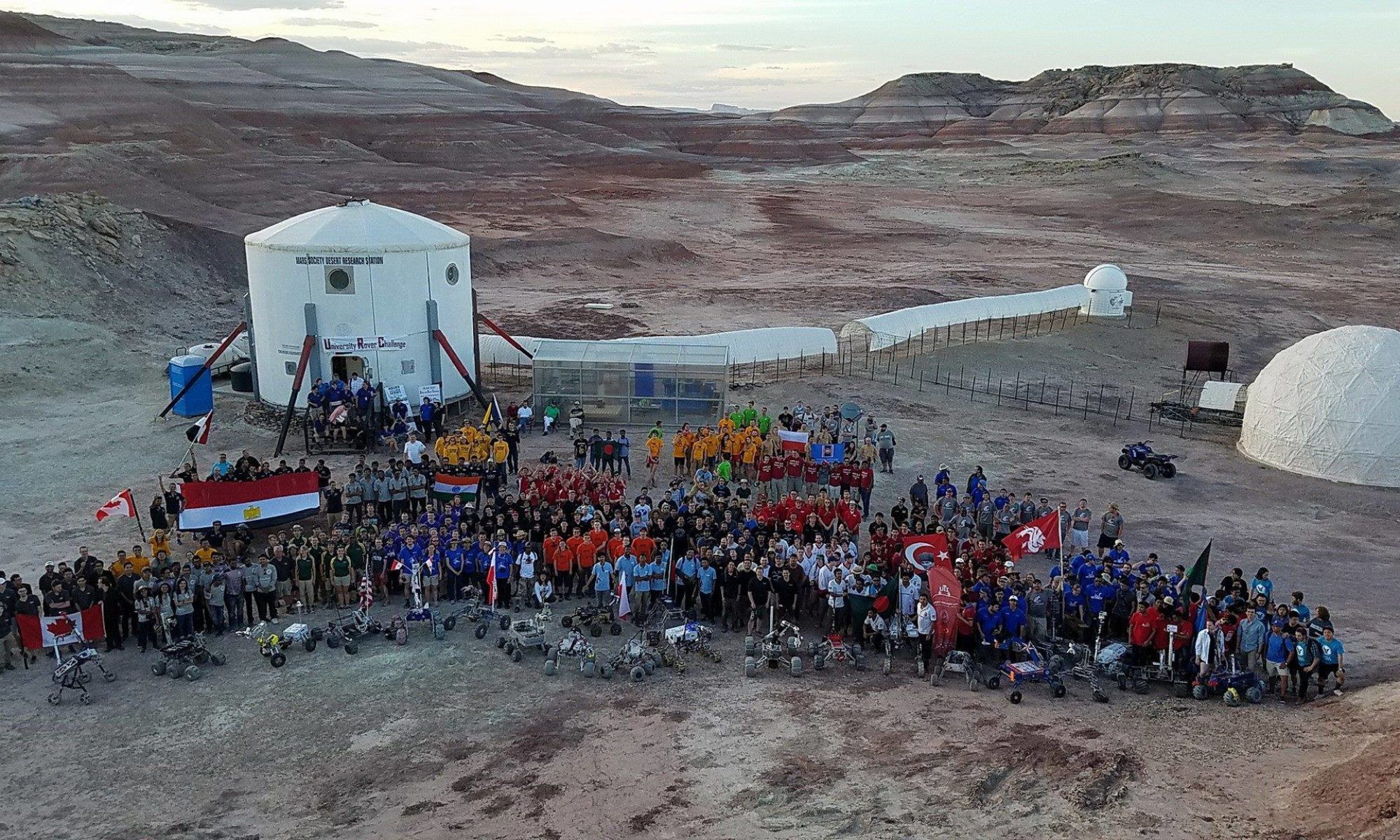
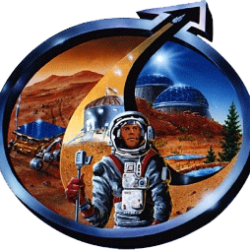
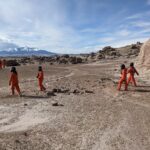
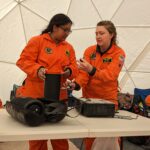
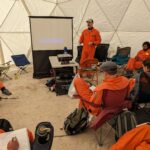
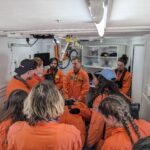
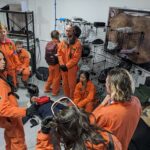
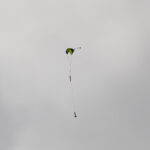
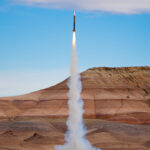
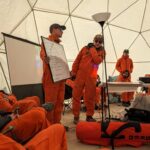
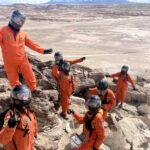
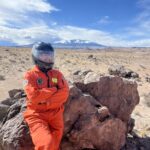

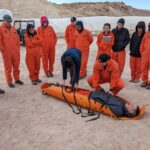
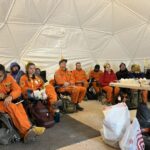
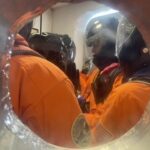
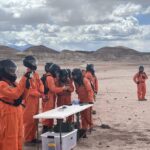
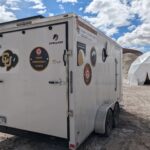
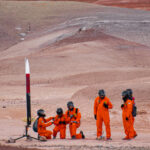
You must be logged in to post a comment.